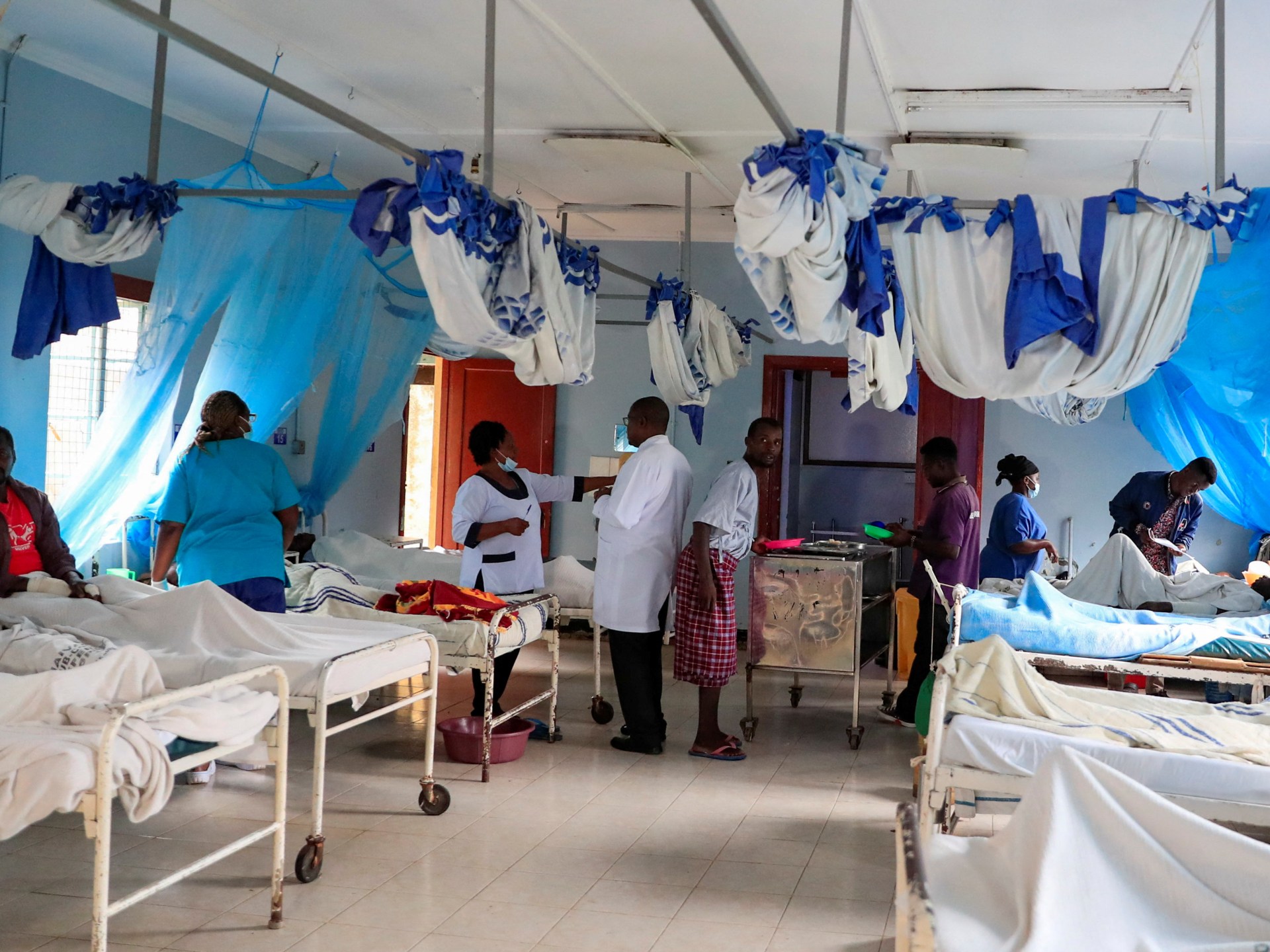Argentine markets plunge after Milei’s party loses in Buenos Aires vote | Financial Markets News
Published On 8 Sep 2025
Argentina’s markets have tumbled, with the peso currency at a historic low, after a heavy defeat for President Javier Milei’s party at the hands of the Peronist opposition at local elections stoked worries about the government’s ability to implement its economic reform agenda.
On Monday, the peso was last down almost 5 percent against the US dollar at 1,434 per greenback while the benchmark stock index fell 10.5 percent, and an index of Argentine stocks traded on United States exchanges lost more than 15 percent. Some of the country’s international bonds saw their biggest falls since they began trading in 2020 after a $65bn restructuring deal.
Recommended Stories
list of 4 itemsend of list
The resounding victory for the Peronists signalled a tough battle for Milei in national midterm elections on October 26, when his party is aiming to secure enough seats to avoid overrides to presidential vetoes.
The government now faces the difficult choice of whether to allow the peso to depreciate ahead of next month’s midterms or spend its foreign exchange reserves to intervene in the FX market, according to Pramol Dhawan, head of EM portfolio management at Pimco.
“Opting for intervention would likely prove counterproductive, as it risks derailing the IMF programme and diminishing the country’s prospects for future market access to refinance external debt,” Dhawan said via email, referring to the International Monetary Fund (IMF). “The more resources the government allocates to defending the currency, the fewer will be available to meet obligations to bondholders — thereby increasing the risk of default.”
He said early indications that the government may double down on the current strategy “would be a strategic misstep”.
The 13-point gap in the Buenos Aires Province (PBA) election in favour of the opposition Peronists was much wider than polls anticipated and what the market had priced in. The government setback at the polls adds to recent headwinds for a market that had until recently outperformed its Latin American peers.
“We had our reservations about the market being too complacent regarding the Buenos Aires election results. The foreign exchange market will undoubtedly be under the spotlight, as any instability there can have a ripple effect on Argentine assets,” said Shamaila Khan, head of fixed income for emerging markets and Asia Pacific at UBS, in response to emailed questions.
“However, it’s important to note that simply using reserves to prop up the currency isn’t likely to provide much reassurance to the market,” she added. “The midterm elections, in my opinion, carry more weight and their outcome will significantly influence how Argentine assets perform in the coming months.”
The bond market selloff saw the country’s 2035 issue fall 6.25 cents, on track for its largest daily drop since its post-restructuring issuance in 2020.
Based on official counts, the Peronists won 47.3 percent of the vote across the province, while the candidate of Milei’s party took 33.7 percent, with 99.98 percent of the votes counted.
Argentina – one of the big reform stories across emerging markets since Milei became president in December 2023 – has seen its markets come under heavy pressure over the last month following a corruption scandal involving Milei’s sister and political gatekeeper Karina Milei where she has been accused of accepting bribes for government contracts..
The government defeat also comes after the IMF approved a $20bn programme in April, of which some $15bn has already been disbursed. The IMF has eagerly backed the reform programme of Milei’s government to the point that its director, Kristalina Georgieva, had to clarify remarks earlier this year in which she invited Argentines to stay the course with the reforms.
The IMF did not respond to questions on whether this vote result would change its relationship with the Milei administration or alter the programme.
Market selloff
Argentina’s main equity index has dropped around 20 percent since the government corruption scandal broke, its international government bonds have sold off, and pressure on the recently unpegged peso has forced authorities to start intervening in the FX market.
“The result was much worse than the market expected – Milei took quite a big beating, so now he has to come up with something,” said Viktor Szabo, portfolio manager at Aberdeen Investments.
Morgan Stanley had warned in the run-up to the vote that the international bonds could fall up to 10 points if a Milei drubbing dented his agenda for radical reform. On Monday, the outcome saw the bank pull its ‘like’ stance on the bonds.
Barclays analyst Ivan Stambulsky pointed to comments from Economy Minister Luis Caputo on Sunday that the country’s FX regime won’t change.
“We’re likely to see strong pressure on the FX and declining reserves as the Ministry of Economy intervenes,” Stambulsky said. “If FX sales persist, markets will likely start wondering what will happen if the economic team is forced to let the currency depreciate before the October mid-terms.”
Some analysts, however, predicted other parts of the country were unlikely to vote as strongly against Milei as in Buenos Aires province given it is a traditional Peronist stronghold.
They also expected the Milei government to stick to its programme of fiscal discipline despite economic woes.
“The Province of Buenos Aires midterm election delivered a very negative result for the Milei administration, casting doubt on its ability to deliver a positive outcome in October’s national vote and risking the reform agenda in the second half of the term,” said JPMorgan in a Sunday client note.
“The policy mix adopted in the coming days and weeks to address elevated political risk will be pivotal in shaping medium-term inflation expectations — and, ultimately, the success of the stabilisation programme.”



